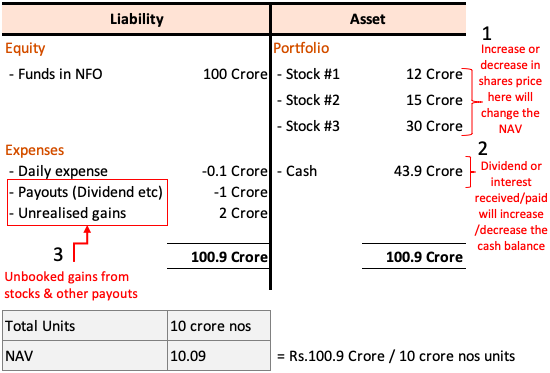The Importance Of Middle Managers: A Key To Employee Engagement And Productivity

Table of Contents
The Bridge Between Leadership and Employees
Middle managers serve as the vital link between upper management and frontline employees. They act as translators, taking high-level strategic goals and breaking them down into actionable tasks for their teams. This crucial role ensures alignment across the organization and prevents a disconnect between leadership's vision and the day-to-day realities of employees. Effective communication flows both ways, with middle managers relaying updates and concerns to upper management and providing clarity and direction to their teams.
- Facilitating clear communication of company goals: Middle managers ensure everyone understands the "why" behind the work, fostering a sense of purpose and shared mission.
- Translating complex strategies into manageable tasks: They break down large-scale projects into smaller, achievable steps, making the work less daunting for employees.
- Providing regular feedback and updates to both upper and lower management: This constant communication keeps everyone informed and aligned, minimizing misunderstandings and maximizing efficiency.
- Addressing employee concerns and escalating issues as needed: Middle managers act as a buffer, addressing employee concerns promptly and escalating serious issues to upper management when necessary.
Fostering Employee Engagement Through Middle Management
Highly engaged middle managers create a positive and motivating work environment. Their leadership style directly influences team morale and productivity. Effective mentorship and coaching are key elements of this engagement. By investing in their team members' professional development, middle managers foster a sense of loyalty and commitment.
- Mentoring and coaching team members for professional growth: Providing guidance, support, and opportunities for advancement boosts employee satisfaction and retention.
- Creating a supportive and collaborative team culture: A positive team dynamic, characterized by mutual respect and collaboration, significantly impacts engagement levels.
- Recognizing and rewarding employee achievements: Acknowledging and appreciating hard work fosters a sense of value and motivates employees to excel.
- Promoting work-life balance and employee well-being: Showing genuine concern for employees' well-being demonstrates care and builds trust.
- Addressing employee concerns promptly and fairly: Responding effectively to employee concerns shows respect and builds a culture of trust and open communication.
Driving Productivity Through Effective Middle Management
Middle managers are instrumental in optimizing workflows, delegating tasks effectively, and monitoring progress. Their ability to identify and address performance issues contributes significantly to overall team productivity. By leveraging their team's skills and talents, they can maximize output and efficiency.
- Optimizing team workflows and processes: Identifying bottlenecks and streamlining processes ensures smooth operation and maximizes efficiency.
- Effective delegation of tasks based on employee skills: Assigning tasks based on individual strengths maximizes productivity and employee satisfaction.
- Monitoring team performance and identifying areas for improvement: Regular performance monitoring allows for timely intervention and proactive problem-solving.
- Implementing strategies to increase efficiency and productivity: Middle managers are responsible for finding and implementing solutions to boost team output.
- Providing regular performance feedback and support: Constructive feedback helps employees improve and grow, contributing to overall team performance.
- Addressing performance issues constructively and fairly: Addressing underperformance fairly and constructively can help improve individual and team productivity.
Developing and Training Effective Middle Managers
Investing in training and development for middle managers is paramount. Equipping them with the necessary skills – leadership, communication, delegation, conflict resolution – is crucial for maximizing their effectiveness. Organizations should prioritize programs that hone these crucial skills.
- Leadership training programs: Developing strong leadership skills empowers middle managers to guide and motivate their teams effectively.
- Communication and interpersonal skills development: Improving communication ensures clear directives and facilitates productive collaboration.
- Delegation and task management training: Effective delegation maximizes team efficiency and develops employee capabilities.
- Conflict resolution and negotiation skills training: Equipping middle managers to handle conflict constructively maintains a positive work environment.
- Performance management and feedback techniques: Providing constructive feedback is essential for fostering employee growth and maximizing productivity.
The Indispensable Role of Middle Managers
In conclusion, effective middle management is not just beneficial; it's crucial for employee engagement, productivity, and overall organizational success. By investing in training and development for mid-level managers, companies empower these individuals to be the bridge between leadership and frontline employees, fostering a thriving and productive work environment. Invest in your middle managers today and unlock the true potential of your workforce. Effective middle managers are the key to a highly engaged and productive team. Learn more about developing your middle management team and discover how to improve employee engagement and productivity.

Featured Posts
-
 Hemen Intikam Alan 3 Burc Ihanet Edildiginde Ne Yaparlar
May 24, 2025
Hemen Intikam Alan 3 Burc Ihanet Edildiginde Ne Yaparlar
May 24, 2025 -
 New Southwest Airlines Policy Restrictions On Portable Chargers
May 24, 2025
New Southwest Airlines Policy Restrictions On Portable Chargers
May 24, 2025 -
 How To Interpret The Net Asset Value Nav Of The Amundi Dow Jones Industrial Average Ucits Etf
May 24, 2025
How To Interpret The Net Asset Value Nav Of The Amundi Dow Jones Industrial Average Ucits Etf
May 24, 2025 -
 Billie Jean King Cup Kazakhstan Defeats Australia In Qualifier
May 24, 2025
Billie Jean King Cup Kazakhstan Defeats Australia In Qualifier
May 24, 2025 -
 Annie Kilner And Kyle Walker Social Media Posts Spark Poisoning Claims
May 24, 2025
Annie Kilner And Kyle Walker Social Media Posts Spark Poisoning Claims
May 24, 2025
